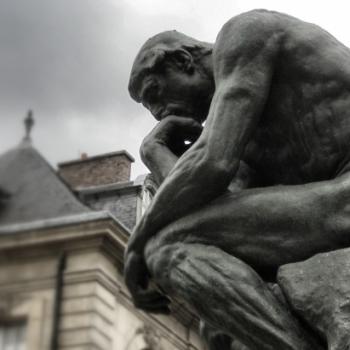
Why is that? I have an educated guess.
First, some background.
I consider myself a pluralist, which means, among other things, that I believe in religious coexistence. For that purpose, I attended an interfaith seminary several years ago and ran a small organization for a few years, whose primary aim was to heal divides.
Noticing Lack of Tolerance
Most of the interfaith events I’ve attended were about increasing tolerance and creating harmony. I felt at home with those goals in mind. That is why I was so confused when I encountered intolerance.
At first, I thought it was only the Christians.
For instance, I met people who used to be Christian and were now ‘spiritual but not religious,’ who seemed to have less tolerance for Christianity than other traditions. I’d taken that path, so it didn’t surprise me (I’ll explain why in a moment).
Yet, somehow, practicing pluralistic Christians also appeared intolerant of their fellow Christians from time to time. This surfaced in different ways. Mostly, they were apologetic for their faith, especially if their militant right-wing Christian counterparts were involved.
What About Other Traditions?
It took me a while to find examples of people in other religions who lacked tolerance for their traditions. It makes sense. Christianity is still the majority religion here. When I did, however, it appeared their reasoning was similar, whether I spoke to former Muslims, liberal/secular Jews or nonpracticing Hindus.
Two Primary Reasons
As far as I can tell, there are two primary reasons for intolerance of previous and/or current traditions.
Reason 1) Spiritual Divorce
First, the ‘not religious’ pull away from their previous traditions and that is why they become intolerant.
I liken it to going through a romantic breakup. To get away, you must see the worst about the other person and distance yourself.
Naturally, most breakups happen for good reasons, and I can tell you some horror stories about why people decided to leave their old religion behind, but that is for another day.
To understand their intolerance, however, it’s enough to see that it was a necessary part of their spiritual divorce.
Reason 2) Being Apologetic
Second, when someone is trying to show respect for various traditions and notices that some people in their group are deriding others instead, they naturally become apologetic.
It’s like being in a family where one person is homophobic. You love that person despite their intolerance, but you become apologetic, sometimes intolerant of their behavior.
That’s what I’ve noticed in religious circles as well.
People, who are trying to find common ground, are often being asked to defend the worst of what is happening in the name of their religion at the same time. They find themselves repeatedly apologizing, eventually becoming intolerant of those they keep apologizing for, sometimes to the point of being intolerant of their tradition.
Reclaiming Tolerance
While both reasons are understandable, I know that most of my fellow pluralists don’t want to embrace intolerance of any kind. It goes against our fundamental belief system.
That is why—if we want to reclaim tolerance of the group we left or still belong to and are constantly apologizing for—we must learn to forgive them, not for their sake but for our own. Forgiveness is an internal process of letting going of anger and resentment.
Related article: Forgiving Your Religion
If That’s What You Want
Again, I understand why some people have distanced themselves from traditions and become less tolerant. They may not be ready to forgive or increase tolerance (yet). That’s okay. Increased tolerance needs to come from a place of inner longing, from values of harmony and cooperation. The feeling cannot be forced on anyone.
Sense of Empathy?
Let me throw one more idea out there to close.
If you notice that you’ve become intolerant of others in the name of tolerance (as in, “they are not as tolerant as I am”), you can perhaps empathize with them.
Thich Nhat Hanh encouraged people to explore feelings they were disgusted by. To resonate with them. And to forgive. When he saw a murderer, he would seek the murderer within. Not to act upon it, but to know where the feelings came from.
Carl Jung said that whatever irritates us about others is something that we need to look at in ourselves.
With that in mind, tolerance is never really about the other person.
It’s an act of self-discovery.
Gudjon Bergmann
Author and Mindfulness Teacher
Amazon Author Profile
Recommended books:
- Monk of All Faiths: Inspired by The Prophet (fiction)
- Spiritual in My Own Way (memoir)
- Co-Human Harmony: Using Our Shared Humanity to Bridge Divides (nonfiction)
- Experifaith: At the Heart of Every Religion (nonfiction)
- Premature Holiness: Five Weeks at the Ashram (novel)
- The Meditating Psychiatrist Who Tried to Kill Himself (novel)
Picture: CC0 License












